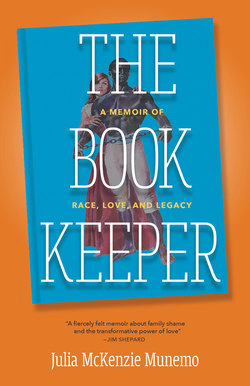Читать книгу The Book Keeper - Julia McKenzie Munemo - Страница 16
На сайте Литреса книга снята с продажи.
Оглавление6
“TURN IN HERE,” Ngoni said as he touched my elbow to steer me into a small restaurant with tables and chairs lined up along a narrow window, a counter at the back. “This is the place I learned about fish and chips.”
We were just off the bus from Cardiff to Llantwit Major, in Wales, where Ngoni went to high school. Our fiancé visa application required forms signed by city officials in each of the places he’d lived, and we managed to make a reunion out of this one. We hadn’t seen each other in six months, and it seemed worth the credit card debt to meet here for a week to spend some time together before the wedding. Make sure we meant it.
I looked around at the people in the little Welsh café and thought about Ngoni’s uncle Dakarai, if he’d ever eaten here. If any of the people here knew him. Dakarai had married a Welsh woman he’d met at Oxford, but all I knew was that it didn’t last. All I knew was what Ngoni had written to me about Dakarai these last months.
“Me being here helps my grandparents’ burden with Dakarai,” he wrote in one letter. I’d not known there was a burden with Dakarai. “Dakarai talks to himself sometimes now,” he wrote in another. “Dakarai broke down the door in his bedroom,” in a third. I sensed fear in Ngoni’s tidy blue cursive words but didn’t know how to hold it. This wasn’t a topic we could talk about on the phone, Ngoni standing in the hallway of his family home. So in my private thoughts about Ngoni’s uncle I used words I’d applied to my own father, and which Ngoni sometimes used to discuss his—mental illness, schizophrenia. But I didn’t know if Dakarai’s illness was like that of his older brother Donal, Ngoni’s dad. If he was, did that mean the illness snaked through this family I was marrying into, as it snaked through my own?
“Tell me more about Dakarai and Cati,” I said to Ngoni as we sat in that Welsh café, unable to ask what was really on my mind.
“There isn’t very much to tell.” His face looked weary. “They met at university, at Oxford. They got married in Zimbabwe.”
Now I had different questions. What was that wedding like? How did his grandparents, who raised Ngoni and whom I had not yet met, treat that white daughter-in-law? I looked across at my fiancé, his soft face, his stoic eyes, the newspaper greasy in his hands, but I couldn’t ask any questions at all because thoughts about race and mental illness were mixing up inside me and I wasn’t sure which topic to pursue, wasn’t sure which topic I really wanted to know more about. Nothing felt safe.
“When they moved back to the U.K., he couldn’t find a job, the marriage fell apart. So he returned to Zimbabwe.”
That conversation we’d had in my dorm room about Ngoni’s father came back to me in a solid beat. How his grandparents had sent him—a child in grade school—to a traditional healer in the bush whom they’d hired to heal his father. Father and son spent weeks there, drinking and expelling medicines, hoping to also expel the evil spirit, because “the spirit that possesses the father possesses the son as well,” he had told me. I wondered now if the family took Dakarai to a traditional healer to expel his spirits, too. If the spirit that possesses a man also possesses his brother. Dakarai went to the best private high school in Zimbabwe, was its first black head boy, studied at Oxford. As Ngoni reminded me of this, I realized that maybe my future in-laws didn’t believe in just one thing. Maybe they lived in two worlds. They’d blamed spirits for possessing Ngoni’s father, but maybe this time they’d blamed something else.
“If he’d been able to find a job, become productive,” Ngoni said, “he and Cati would have been fine. He would still be living here.” He stood up, wiped his hands on a thin paper napkin, wrapped up the newspapers with our other trash, and tossed it all into the overflowing bin. “It’s as simple as that.”
It didn’t seem simple, but something stopped me from saying so. The same thing that stopped me from asking about the first interracial wedding in his family or what it was like to live with Dakarai now, even though we were alone in Wales and I could have asked him anything. What kept me quiet that day? Fear of admitting that I was scared for our future and what we might pass on to our children? Anxieties about not having the right language for our racial and cultural differences? Naïveté and my assumption that everything would be fine because we loved each other?
* * *
HERE IS A list of what I carry: One of my father’s cousins killed himself when he was twenty-four. One of my father’s cousins lived in an institution most of her adult life. One of my father’s cousins died of cancer but took pills every day to quiet the voices. One of my father’s cousins mixed cyanide with orange juice and fed it to her son, to her dog, to herself.
Some of the survivors whisper that the disease followed their parents from the shtetl. Some of the survivors whisper that the disease can’t be traced because it died in the camps. Some of the survivors whisper that the disease started after the war. Some of the survivors whisper that it lingers now in our blood.
One of the survivors called me when our first son was born and told me that now my worries would really begin.
